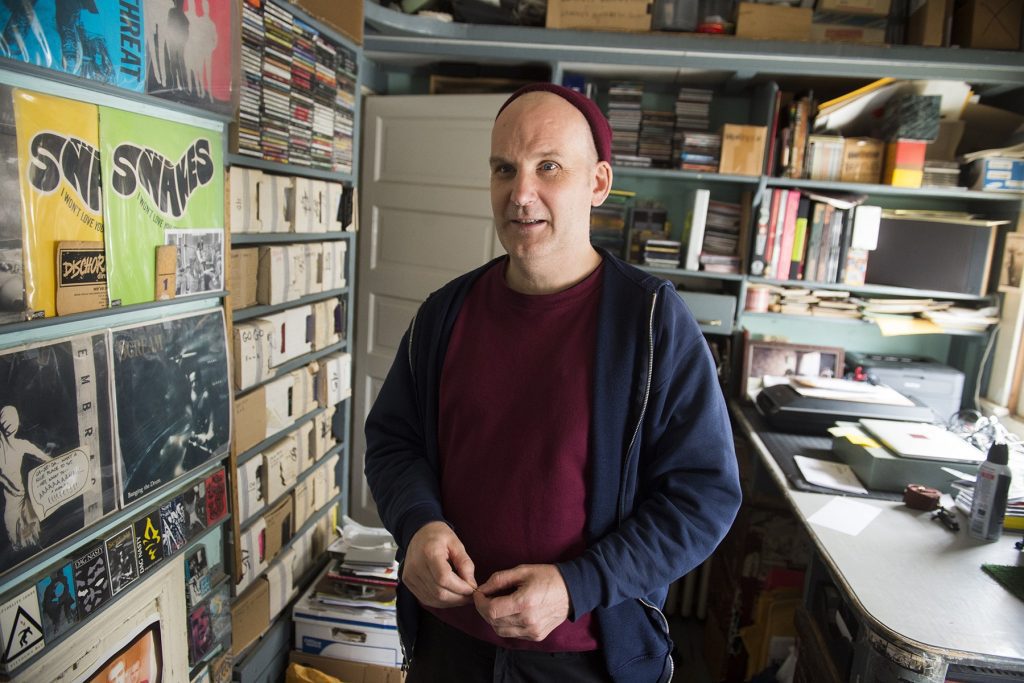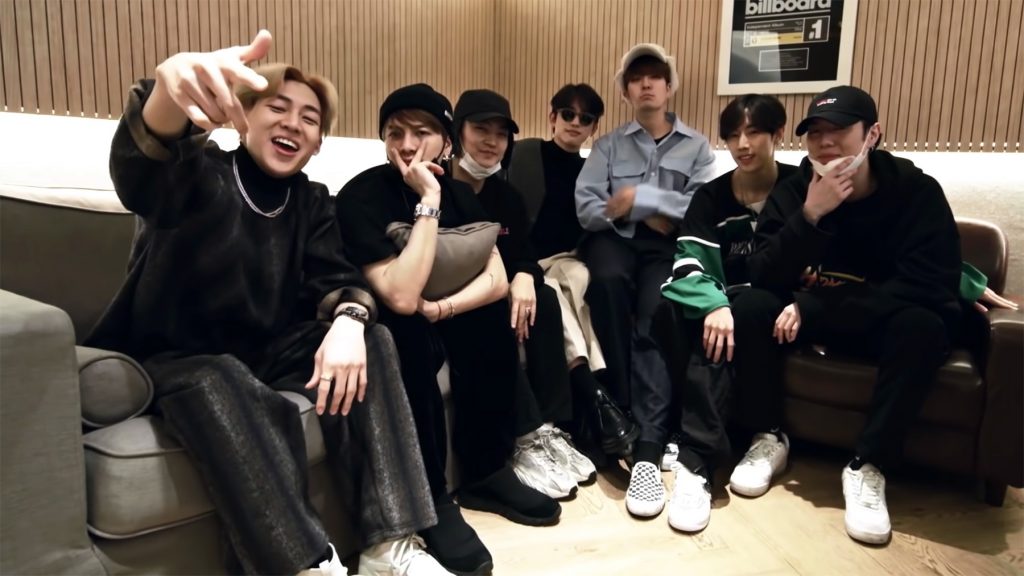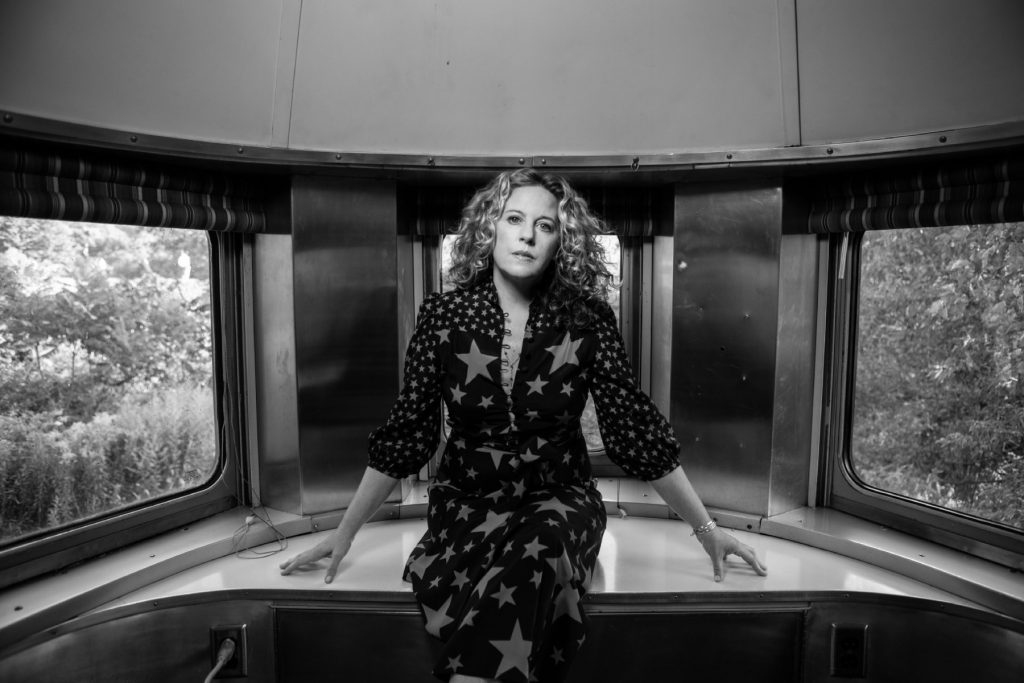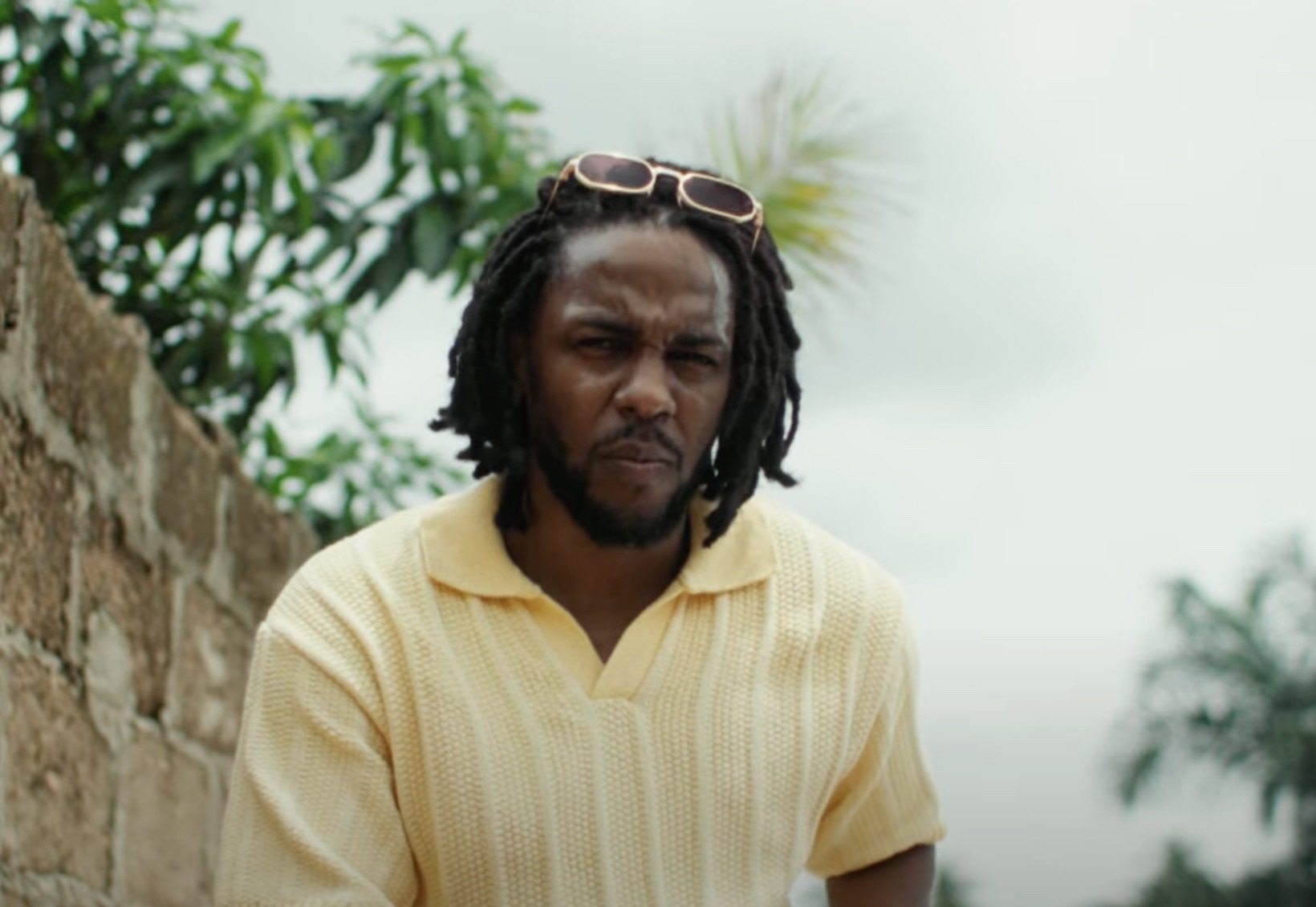
Ian MacKaye Talks ‘Woodstock’ Soundtrack Obsession in New Book Excerpt
Hardcore legend Ian MacKaye explains how Woodstock and an unexpected house guest helped lay the foundation for his love of music in this new excerpt from Eric Spitznagel’s new book, Rock Stars on the Record: The Albums That Changed Their Lives.
The book consists of interviews with an array of artists discussing the music that influenced them most when they were kids. Along with MacKaye, the book features Laura Jane Grace, Mitski, Cherie Currie, Mac DeMarco, “Weird Al” Yankovic, Suzi Quatro and more.
For MacKaye, his parents weren’t a particularly potent source of musical inspiration, though he says he did grow fond of Floyd Cramer’s “Last Date,” a “schmaltzy, instrumental piano, kind of swing jazz thing,” that exemplified his mother’s taste. Rather, MacKaye’s ears were sharpened by outside influences: A babysitter who introduced him to Jimi Hendrix; a woman living in a commune down the road from his childhood home who had James Gang and Jefferson Airplane records; and finally a Vietnam vet-turned-conscientious objector, who needed a place to live and ended up moving into MacKaye’s home.
blogherads.adq.push(function () {
blogherads
.defineSlot( ‘medrec’, ‘gpt-dsk-tab-article-inbody1-uid0’ )
.setTargeting( ‘pos’, [“mid-article”,”mid”,”in-article1″,”mid-article1″] )
.setSubAdUnitPath(“music//article//inbody1”)
.addSize([[300,250],[620,350],[2,2],[3,3],[2,4],[4,2]])
;
});
One record in the vet’s collection was Woodstock, the live album featuring select performances from the famous festival. MacKaye recalls being enthralled by not just the music — especially Ten Years After’s “I’m Going Home” — but the very idea of Woodstock and its countercultural promises.
MacKaye admits that latter allure faded as he grew older and his perspective changed, saying, “[At first], it was so mysterious and impossible. I thought all these bands were great friends and they hung out together and were going to stop the war, and racism, and sexism. The scales fell from my eyes as I got older. I evolved because it’s natural to evolve.”
But years later, after spending a chunk of his adolescence as a diehard Ted Nugent fan alongside his friend, Henry Rollins, MacKaye said the countercultural possibilities he found in Woodstock reappeared in punk.
“At that point, the seventies’ ideas of counterculture had largely been limited to self-destruction,” MacKaye says. “Most of the kids I knew who were rebellious in high school would just party. Even back then, I used to think, ‘What a strange way to rebel—to neutralize yourself. You can’t be a problem for the government if you don’t exist.’”
What kind of music did your parents listen to when you were growing up?
My parents had a Grundig console phonograph, a one-piece thing where you flip down the turntable and the speaker is in the base of the unit. They had a 45 of “Last Date” by Floyd Cramer. I think I was probably four or five; I can remember playing that record over and over, lying on the floor with my head next to the speaker, just being completely obsessed with it.
Is it any good?
Oh, I don’t know. I loved it, but it’s sort of a schmaltzy, instrumental piano, kind of swing jazz thing. My parents were not music people, per se, but my mother loved piano pieces.
Was there anybody else giving you a better musical education?
I had a babysitter who kind of knew about rock & roll. We visited a friend of my parents who had a pretty big record collection, [including] Smash Hits by Jimi Hendrix. He let me play it, and it was one of those moments where I couldn’t stop listening. I fell in love with Hendrix. I still love his music. I’ve probably studied him more than any other musician.
Really? That’s surprising.
Well, maybe not more than the Beatles. The Beatles are also way up there. Their records became holy objects to me. The covers took on almost mystical properties.
blogherads.adq.push(function () {
blogherads
.defineSlot( ‘medrec’, ‘gpt-dsk-tab-article-inbody2-uid1’ )
.setTargeting( ‘pos’, [“mid-article2″,”mid”,”in-article2″,”mid-article”] )
.setSubAdUnitPath(“music//article//inbody2”)
.addSize([[300,250],[300,251],[620,350],[2,4],[4,2],[3,3]])
;
});
You couldn’t listen to them?
This was before I had access to my own turntable. In the early seventies, there were some college kids who moved into a group house on Beecher Street in Washington, D.C., just a few houses down from where I grew up.
A group house?
Like a commune. They were hippies, I guess — they had long hair and wore bell-bottoms, and they painted a sun on their stairwell wall, that sort of thing. They kind of took me in, maybe because I was a local little hippie kid. In any event, they were pretty relaxed, and you could just wander in and out of the house.
One of the women, who was probably 17, 18, or 19 — but she might’ve been 100, for all I could tell — had a crate of about 30 records. She told me that she used the crate to block the door when she and her boyfriend were together. It gave me a sense of just how heavy that crate must have been [and] made me think that whatever it was she and her boyfriend were doing behind the door must have been pretty damn interesting.
What was in the collection?
There was Jefferson Airplane’s Volunteers and the James Gang’s Thirds. A lot of records I never heard. It was like coming across hieroglyphics, where you want to know what’s on the other side of that writing.
The other significant record collection that I came into contact with around that time belonged to a Vietnam veteran who had become a conscientious objector while in the service; he was put into a psychiatric hospital and then deposited onto the streets of D.C. He ended up living in the boarding house next door and became friends with my mother.
I guess he was having money problems, because at some point my mom invited him to move into our house. We already had my parents, five kids, a dog, and who knows how many cats living there. There weren’t any rooms available for him, but he was able to set up a little camp under the baby grand piano in our living room.
He kept his records and stereo under the piano, as well. The speakers were these round omni-directional affairs that pointed straight up into diffusing cones. He let me listen to his records and I would go lie under the piano and put a speaker on either side of my head.
Did you have a favorite record in his collection?
He had the Woodstock album, with the triple gatefold cover that opened out into a panoramic photo of the crowd. Sometimes I would set up the sleeve to stare at the crowd when I listened to it. I probably played that thing a hundred times.
blogherads.adq.push(function () {
blogherads
.defineSlot( ‘medrec’, ‘gpt-dsk-tab-inbodyX-uid2’ )
.setTargeting( ‘pos’, [“mid”,”mid-articleX”,”in-articleX”,”mid-article”] )
.setSubAdUnitPath(“music//article//inbodyX”)
.addSize([[300,250],[300,251],[3,3],[620,350]])
.setLazyLoadMultiplier(2)
;
});
Were you enamored by the music, or the idea of Woodstock?
I really believed in music, that [it] could be central to social revolution or progressive thinking. I’m not saying it solely comes from that, but it is the trumpet blast of the counterculture. Music is either a secret language or it’s a currency that we trade.
When you listened to those songs, were you thinking, “I wish I could’ve been there,” or “I wish I could create my own Woodstock”?
I was still a kid and pretty freaked out by some of the countercultural stuff, especially the drugs and alcohol, so I think I would have been pretty scared in that setting. On the other hand, I loved rock ’n’ roll so much, and I really bought into an idealized notion about Woodstock. I actually had fantasies about putting on my own festival.
Like creating your own Woodstock?
Yeah. I’d sit in the back seat on family trips, staring out the window and scouting locations. Looking for big fields that might work and keeping lists of bands I wanted to book.
That is fantastic. Do you still have them?
I wish I still had those lists. I don’t remember any of the bands I had jotted down, except for Mountain — on every one of them! I didn’t actually know their music beyond their one big hit, “Mississippi Queen.” It’s just that they had played Woodstock and seemed like a cool band. Of course, I would have wanted Hendrix, but he was dead. That was a big strike against him in terms of future festivals.
So, you didn’t have a casual relationship with the record?
No, I probably went through several copies. I studied it intensely. I knew every lick of Ten Years After’s “I’m Going Home” — it’s just one of the greatest performances ever — and I think Hendrix’s “Villanova Junction Blues” is one of those most incredible pieces of recorded music. I bought multiple DVDs of the movie and footage and read a handful of books on the subject over the years; in fact, I ordered another Woodstock book the other day.
It’s still as fascinating to you today as it was when you were a kid, lying under that piano?
Well, not exactly. My perspective and experience has changed a lot in the last fifty years. Think about someone using a pencil to mark your height on a door frame when you’re a little kid. That mark will remain in the same location, but it evolves from, “Oh, that’s how tall I am,” to “Look, I’m getting taller,” to “I can’t believe I was ever that short.” And then at some point the mark make[s] you think, “Oh, my dad made that notch and he’s dead.” The mark changes with your perspective.
That’s a great way to put it.
That’s the way I think about the Woodstock stuff. [At first], it was so mysterious and impossible. I thought all these bands were great friends and they hung out together and were going to stop the war, and racism, and sexism. The scales fell from my eyes as I got older. I evolved because it’s natural to evolve.
blogherads.adq.push(function () {
blogherads
.defineSlot( ‘medrec’, ‘gpt-dsk-tab-inbodyX-uid3’ )
.setTargeting( ‘pos’, [“mid”,”mid-articleX”,”in-articleX”,”mid-article”] )
.setSubAdUnitPath(“music//article//inbodyX”)
.addSize([[300,250],[300,251],[3,3],[620,350]])
.setLazyLoadMultiplier(2)
;
});
You lost that idealism?
No, but my relationship with music changed. I’ve been playing for more than forty years. I’ve been in a number of bands, toured extensively, worked production for other bands, produced hundreds of recording sessions, booked shows, and [founded] a record label. I have a pretty good understanding of what goes on, so when I look [back] at Woodstock, it’s fascinating to see what that mark in the door frame means to me now.
Do you remember the first record you ever bought?
I think it was a seven-inch of “Summertime Blues” by The Who, and it was probably 1972 or ’73. It was the first record I acquired, albeit illegally. Not my proudest moment.
You stole it?
I shoplifted it from a local five-and-dime and almost got caught. Luckily, the sweat under my arm kept the record stuck to my skin, so it didn’t fall out when the guy wrenched open my arm up to see if I was hiding anything. I was a broke-ass ten-year-old.

‘Rock Stars on the Record’ by Eric Spitznagel
Do you remember the first time you listened to a record and thought, “I could do this, I could pick up a guitar and make my own music”?
That did not happen right away. The people on the radio were something akin to gods, and how could I see myself in that pantheon? So, I became a skateboarder instead. That’s how I met Henry Garfield, who later became Henry Rollins. We grew up together around the neighborhood in DC, but skateboarding was how we became pretty inseparable. We got into a lot of heavy rock bands together. We actually saw Ted Nugent…
Ted Nugent? The Nuge?
Yup, we saw him live three times. Double Live Gonzo was like our bible.
That’s so hard to imagine. Ted Nugent today is, you know…kind of a tool.
Yeah. I think he’s always been maniacal, and his mania hasn’t always been well-placed. Just recently I came across a video of him giving some guy a tour of his house and I was repelled by almost everything about him, except for the fact that he clearly has a deep and abiding love for music. He’s a pretty incredible guitar player.
How did you and Henry gravitate from the Nuge to punk?
My friends at high school started getting into what was called “New Wave” or “Punk,” and at first, I was disgusted by it. I was a Nugent guy. We weren’t even tolerant of his opening bands. We’d be like, “Fuck those people!”
blogherads.adq.push(function () {
blogherads
.defineSlot( ‘medrec’, ‘gpt-dsk-tab-inbodyX-uid4’ )
.setTargeting( ‘pos’, [“mid”,”mid-articleX”,”in-articleX”,”mid-article”] )
.setSubAdUnitPath(“music//article//inbodyX”)
.addSize([[300,250],[300,251],[3,3],[620,350]])
.setLazyLoadMultiplier(2)
;
});
The second time we saw Nugent, Van Halen was opening for him. And there were these kids with a big bed sheet with “Van Halen” painted on it or something, I guess to indicate [who] they were there to see. And Henry and I were like, “Fuck yooooou! Nugent rules!”
Such little assholes.
We really were. Funny thing is, it was not a good show for the Nuge. Van Halen definitely won the stage that night.
Anyway, I was argumentative about punk. I had been influenced by the mainstream dismissal and derision. I just didn’t get it, but then a friend lent me a bunch of punk/new wave records, including the first Sex Pistols album; this would have been in November or December of ’78.
What did you think?
At the time, music had been defined by commercial radio, so the punk stuff didn’t sound like music to me. The Sex Pistols were especially agitating and confusing, a little scary. It was too messy or angry or something.
There was one song that I could recognize as rock & roll: “Bodies.” It has one of the greatest rock riffs of all time, but also the most screwed-up lyrics.
Oh, yeah. It’s got abortions in a factory, and babies screaming.
Terrifying stuff. And this is 1978, [when] the Eagles were taking a chance with a free ride or whatever. Hotel California is where one might check in and never check out. That sort of dreck. Never Mind the Bollocks was just so shocking by comparison. But I couldn’t stop listening to it.
I had a moment of clarity: “Oh, this is the counterculture. This is the part of music that I was listening for on the Woodstock soundtrack.” Because the Eagles were not the counterculture.
Not even close.
At that point, the seventies’ ideas of counterculture had largely been limited to self-destruction. Most of the kids I knew who were rebellious in high school would just party. Even back then, I used to think, “What a strange way to rebel — to neutralize yourself. You can’t be a problem for the government if you don’t exist.”
But the Sex Pistols sounded like real rebellion?
Not just them, punk in general. Every one of these records was a mystery box. I just jumped in. I was unprepared for the amount of seven-inches that I’d discover; this ocean of ideas waiting for me when I got to the import store, which is what we called independent record stores back then.
Not the mall record store with the records you heard on the radio?
No. These were small shops that imported from England and got records from independent distributors in the States. Browsing those racks was a mind-blowing experience. There were boxes of singles being sold for a dollar, and if Henry and I each had five dollars, we’d buy 10 different records and listen to them together.
blogherads.adq.push(function () {
blogherads
.defineSlot( ‘medrec’, ‘gpt-dsk-tab-inbodyX-uid5’ )
.setTargeting( ‘pos’, [“mid”,”mid-articleX”,”in-articleX”,”mid-article”] )
.setSubAdUnitPath(“music//article//inbodyX”)
.addSize([[300,250],[300,251],[3,3],[620,350]])
.setLazyLoadMultiplier(2)
;
});
Would you pick things based on the band name or the album art?
Both. Early on, to avoid progressive rock, I had a fixed rule: No keyboards. This served me pretty well. But I remember being at a more mainstream record store in Georgetown that had a small import section; there was a 10-inch by a Los Angeles band called the Dickies, and it was on A&M records, a major label, which was a strike against it in my mind. But I had heard the Dickies before.
Not on the radio.
No. It was 1979. My older sister and I were in Connecticut, and we went to New Haven to see the Ramones. One of the guys driving with us had a cassette tape, a series of songs that were not on the same record.
Like a mixtape?
Yeah. I had never, ever heard of such a thing before that moment.
You never heard of mixtapes?
I just thought you’d get a cassette and record side A of an album on one side, and side B of the album on the other side. It had never occurred to me to mix and match songs. He put the tape in the deck in the car and suddenly we were listening to one band after another, and I finally said, “What is it?” The guy handed me the cover, which he’d made; it was like a Sunday comic on one side, and the other was a handwritten list of songs. It was miraculous.
One of the songs that played was a jacked-up cover of the theme from The Banana Splits — you know, the children’s show? — a very fast, distorted guitar version. I was like, “What on earth?”
You had to have it?
Well, I filed it away in my memory. So, at the record shop in Georgetown, when I saw this 10-inch by the Dickies, I was so excited! “That’s the band that did the Banana Splits theme on the compilation tape!” But then I looked on the back cover and they had a keyboard player.
Oh, no!
This is a problem.
Your only hard-and-fast rule. What did you do?
Henry remembers this so well: he says I just stood there, holding that record for probably forty minutes agonizing over whether or not to buy it. I finally decided to go for it, and I’m so glad I did. It’s a white vinyl 10-inch, and it’s such an amazing, incredible record. It’s still in my record shelf in my living room.
blogherads.adq.push(function () {
blogherads
.defineSlot( ‘medrec’, ‘gpt-dsk-tab-inbodyX-uid6’ )
.setTargeting( ‘pos’, [“mid”,”mid-articleX”,”in-articleX”,”mid-article”] )
.setSubAdUnitPath(“music//article//inbodyX”)
.addSize([[300,250],[300,251],[3,3],[620,350]])
.setLazyLoadMultiplier(2)
;
});
Sometimes you have to break your own rules.
Sure. But for the most part, I prefer to lessen my options. I read a quote from a painter — I wish I could remember who — but he or she said, “I paint myself into a corner and then I paint my way out.”
And you do that with music?
If you look at my work, by and large, I take a position or approach on something and I stick with that to figure out how to make it work. Like in Fugazi, I used one guitar, one amp, one cord, and no pedals. The idea [being], what sounds can I get out of this instrument using only these few tools? How can I mimic an effect by using tone or volume or the way I finger things? I don’t want more options. I want less options and more engagement.
Back in 1979, I don’t think I was particularly serious about having rules like “I’m not buying anything with keyboards on it,” but [it] served as a good filter. An excellent way to avoid all of the yeses in the world when a simple “no” could suffice.
Excerpted from Rock Stars on the Record by Eric Spitznagel, Copyright © 2021 by Diversion Books



